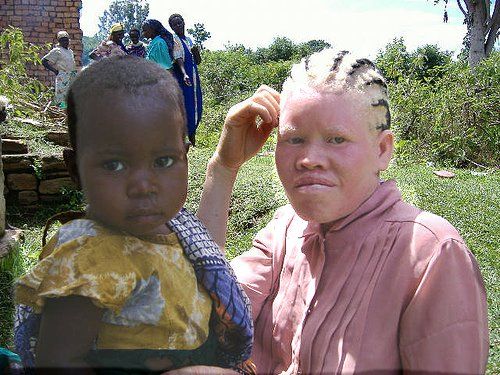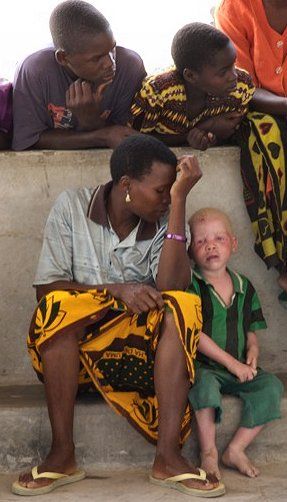Witch doctors use body parts of people with albinism in various rituals, which has led to a “clandestine market for body parts,” an independent expert on albinism reported to the UN Human Rights Council in Geneva. Witch doctors participate in traditional medicine, which includes muti or juju; however, this particular practice—using the body parts of people with albinism—is all too common. The independent expert, Ikponwosa Ero, urged the UN to enact additional oversight of traditional healers in the report she issued on Saturday.
“Persons with albinism are amongst the most vulnerable persons in the region,” Ero stated in an earlier report. “After centuries of chronic neglect of their plight, they have been relegated to the fringes of society where stigma and discrimination in every aspect of their lives have been normalized.”
Sometimes that stigma and discrimination can lead to fatal consequences. In many African countries, the bones and body parts of people with albinism are thought to bring wealth, good luck, and have curative properties.
Albinism is a genetically inherited condition that often results in a lack of melanin pigment in the hair, skin, and eyes. It can occur all over the world, regardless of ethnicity or gender, but is more common in sub-Saharan Africa, according to the UN World Health Organization. There, it’s estimated albinism affects 1 in every 5,000 to 15,000 people. In Europe and North America, the incidence is only 1 in 17,000 to 20,000 people.

By ZacBowling at English Wikipedia, CC BY 2.5, via Wikimedia Commons.
“The issue is further complicated by the lack of effective oversight over the practice of traditional healers, the secrecy that often surrounds witchcraft rituals and the absence of clear national policies on the issue,” said Ero, who has albinism.
The call for more oversight came shortly after a traditional healer was convicted in South Africa for murdering and dismembering a 20-year old woman with albinism.
“Too often, only middlemen and hired hands are arrested or prosecuted,” Ms. Ero said in reference to the case. “This sentence from the High Court of South Africa is particularly important as it condemns the man who organized and recruited persons for the crime.”

Originally uploaded by Muntuwandi at English Wikipedia. Later versions uploaded by Jeeny at en.wikipedia. CC BY-SA 2.0, via Wikimedia Commons
This isn’t the first time Ero has asked the UN to step in. She also asked them to coordinate efforts in 2015, shortly after she was appointed, to end the sudden surge in attacks against people with albinism during the election season.
People with albinism are often targeted for their bones, and the recent conviction represents just one of many cases. According to the Office of the High Commissioner for Human Rights (OHCHR), there have been at least 600 reports of attacks and violations of rights of people with albinism in 27 countries, the majority in the past six years.
Ero asked the UN to act to prevent such attacks by not only addressing the body trafficking of people with albinism, but also by educating. Demystifying albinism and dispelling some of the misbeliefs of traditional doctors and their clients could go a long way to prevent these tragic deaths.






